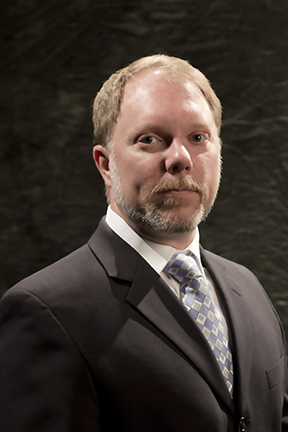Calendar Icon
Nov 21, 2012
Person Bust Icon
By Carole Wilbeck | Engineering
![]() RSS
Submit a Story
RSS
Submit a Story
As UNL's Biological Systems Engineering department celebrates 100 years since its first graduate in 1912, new BSE department chair Mark Riley—who began work October 15—looks forward to leading its programs.
A Michigan native with degrees in chemical engineering from the University of Michigan and Rutgers, Riley spent the past 15 years at the University of Arizona, where he became department head of Agricultural and Biosystems Engineering in 2009.
Finding himself at home among bio-engineers, Riley advanced the field as founding editor-in-chief of the peer-reviewedJournal of Biological Engineering.
His favorite part of teaching is engaging students in learning—leading classes with “not just equations but trying to help young engineers understand what matters and why engineering is so important to our economy and our environment.”
Riley values his skills as a “matchmaker”: bridging academia and industry, and even different disciplines within engineering and life sciences. “The engineer and the life scientist don’t always speak the same language and often have different goals,” Riley said, “but I enjoy finding ways to help them communicate and work together.”
From growing up in Detroit, he learned early on that new visions are necessary. For example, “we’ve got to rethink manufacturing,” Riley said. “Any new products can’t have wastes that contribute to landfills; we need to use all the energy and byproducts available. It is exciting to come to Nebraska to continue the development of smart machinery, biomedical devices, renewable energy and agricultural products. We need to explore more deeply the human-machine interface by using our expertise in machinery testing integrated with our biomedical applications.”
The Albuquerque-based company Riley co-formed with his business partner Dr. Robert Klein, RediRipe, grew from his research involving sensors—in this case, labels indicating fruit ripeness. Nebraska Innovation Campus intrigues Riley, and he’s eager to learn more and help BSE faculty and students be involved.
“Our diverse department has phenomenal people—faculty, staff and students—and it’s a great time to be doing this kind work,” Riley said. “There’s a wonderful blend here of the traditional and the futuristic, but at the end of the day the key is how well our work helps people lead healthier and more prosperous lives.”
Submit a Story
